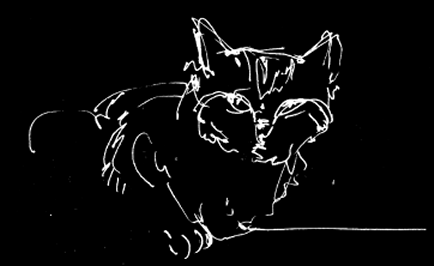Alzheimer’s or Dementia Therapy:
Researchers have seen considerable success in slowing down the progress of the disease.
Reality orientation is a technique in which people caring for others with this type of disorder take every opportunity to orientate the person. This might be to remind the person where they are and what time and day it is. It is important to validate accurate perceptions and disagree when the person says something incorrect.
Reality orientation is a technique in which people caring for others with this type of disorder take every opportunity to orientate the person. This might be to remind the person where they are and what time and day it is. It is important to validate accurate perceptions and disagree when the person says something incorrect.
Reality orientation does help people make changes and to
respond realistically to their environment.
But, this should be sensitive to the person’s emotional state and to any
care plan that is in place.
Reminiscence therapy
involves stimulating the recollection of events and memories from the
past. This is achieved by using music,
DVD, pictures, movies (that the person may have seen in their past) or food and
clothing from past times.
People often enjoy this process and it does tend to make
them feel empowered. Older people love
telling stories and younger people love hearing them. Grandchildren will want to know stories about
their parents as children. Effective as
this can be, it is still not going to prevent the memory getting worse in the
long run. Creative application of long
term reminiscences can be comforting by being about situations that are
familiar.
Validation therapy emphasizes the emotional world of the
person and offers useful techniques for communication. One may play a game of “tuning in” to a
particular person or situation and guess strategies for handling or recognizing
what is familiar.
It is important to listen to the person but not get into
protracted negotiation or arguments about dates, facts or realities. Validate what is useful and concrete
knowledge and perception but try to minimize the effects of failure.
This may bring sense out of less clearly articulated
communication. The idea is not to impose
our reality but to let them express a more real version of theirs.
Memory training
by using external aids, mnenemonies, photographs, and a written list of routine
functions can be effective.
Going over self care tasks helps the person to feel
empowered and less needy. Short daily training classes with a lot of
stimulating interaction may prove useful.
Emphasis can be place on how the tasks feel rather than relying on verbal
or written instruction. This appeals to
the person’s felt-sense experience.
Stimulate the individual by conversation, books, dance, art
and movement. Going shopping or for a
drive while noticing the environment and sounds. Use of exercise programs, and calming by
stretching or relaxation all bring a sense of awareness which brings comfort
and confidence.
Behavioral approaches promote a sense of achievement:
- Increase the person’s level of independence including relearning of lost skills and maintaining existing skills. The use of caring verbal prompts helps as a reminder when short term memory is lacking.
- Reduce the level of behavioral disturbance and difficulty. This would include independence in mobility and such basic issues as continence. The person might be encouraged to void often and at regular intervals.
- COMMON DIETARY SUPPLEMENTS
- Ginkgo Biloba
- Vitamins B6, B9 & B12
- Vitamin E
- ω-3 Fatty Acids
- Vitamins A & C
- Vitamin D
- Phospholipids: Phosphatidylserine & Phosphatidylcholine
- Ginseng
Cognitive-behavioral therapy with a trained
professional has been found useful.
Weekly sessions may include caregivers as well as the person in
need. Thus, everyone learns to be more
observant of change and more able to support.
This can assist with depression and burn out. Therapy can include progressive relaxation
techniques and strategies for anger and stress management. Successive tensing and relaxation of muscle
groups relies on procedural memory which is relatively spared in dementia.
Even after all of this it may be necessary to place the
person in long term residential care. But the early adoption of interactive
strategies can slow down the frustrations of impairments and support more
active involvement in the community or family, and thus enhance quality of
life.
Complementary Alternative Medicine should be explored as
well as psychopharmacology of a more traditional ‘Western’ kind. There have been many advances in geriatric
care and prescription drugs. As with
everything, information brings power and safety. Seek professional trained consultation at all
times.

No comments:
Post a Comment